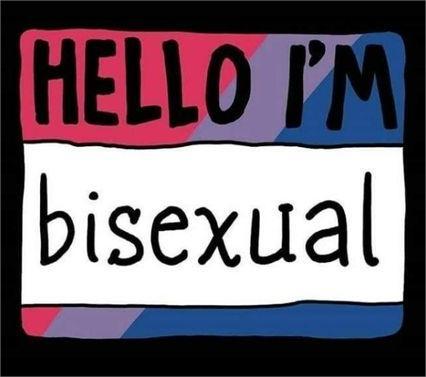The terms “bisexual” and “bi+” serve as umbrella terms for people who recognize and honor their potential for sexual and emotional attraction to more than one gender. This includes people who identify as bisexual, pansexual, omnisexual, fluid, queer, asexual, or other self-determined labels. Despite this broad and inclusive definition, bi+ people are often misunderstood or erased, both by society and even within the LGBTQ+ community.
Free Consultation
Writer's information:
Yijia is a proud Queer Asian therapist, based in Tkaronto (colonially known as Toronto)
Like other sexual minorities, bi+ individuals face harmful stereotypes and misconceptions. Society often views bisexuals as "confused" or "greedy," dismissing their sexual orientation as a phase or experimentation. Bi+ people, because of their attraction to more than one gender, are often perceived as untrustworthy, and their orientation is seen as a mere curiosity. Over time, these harmful beliefs have led to stereotypes labeling bisexuals as "promiscuous" or "indecisive."
This bias becomes particularly pronounced when bi+ individuals are in relationships. If they are with someone of the opposite gender, they may be accused of "turning straight." On the other hand, if they are with someone of the same gender, they may be seen as "finally realizing they're gay." This constant invalidation leaves bi+ people in a no-win situation, where their identity is rarely fully recognized or respected. This contributes to bi+ individuals being less likely to come out than their gay counterparts and places them at a higher risk for mental health struggles and intimate partner violence.
What’s even more disheartening is that in some cases, this rejection comes from within the LGBTQ+ community itself. For instance, in some lesbian circles, there is a belief that any woman who has had intimate relationships with men is "faking it" or only pretending to be interested in women. This mentality erases bisexual women’s experiences, even when they clearly identify as bi+ or are exploring their orientation. This can also lead to harmful fetishization, such as straight men assuming that bi+ women will always want to engage in threesomes with other women.
This erasure and fetishization of bisexual identity not only ignore the complexity of individual sexual orientations but also make it more difficult for bi+ individuals to find a sense of belonging. It suggests that only those who have never explored relationships with multiple genders can be considered "pure" or "authentic" in their sexuality. This exclusionary mindset amplifies the prejudice faced by bi+ individuals and can deeply impact their mental health.
The constant invalidation and discrimination bi+ people face lead to profound mental health challenges. Studies show that identity erasure, discrimination, and isolation significantly contribute to anxiety, depression, and other mental health struggles. Bi+ individuals are more likely to experience intimate partner violence than their gay or lesbian counterparts, and the stress they endure often leads to higher rates of smoking and substance use disorders within the bi+ community. When our identities are erased or denied, the psychological toll can be severe, creating long-lasting effects on self-esteem, mental well-being, and the ability to form meaningful relationships.
Another harmful consequence of bi+ erasure is the fetishization of bi+ individuals, particularly women. A common stereotype is that bi+ women are inherently more sexual or adventurous, often leading to assumptions that they are more likely to engage in threesomes or other hypersexualized activities. For example, a straight man might assume that a bi+ woman would always want to have a threesome with another woman, reducing her identity to a sexual fantasy rather than acknowledging her full personhood. This kind of objectification is dehumanizing and reinforces harmful power dynamics, further isolating bi+ people and perpetuating their struggles with finding genuine connections and respect.
This is where mental health support becomes crucial. Bi+ individuals need safe spaces to explore and affirm their identities, whether they are attracted to people of the same or different genders. Their feelings and experiences are real and valuable. As a society, we must discard harmful stereotypes and create an environment that respects and embraces the diversity of all sexual orientations. When our identities are validated, our mental health thrives.
Philosopher Immanuel Kant once said, “Human beings are ends in themselves,” meaning that every individual deserves to be seen, heard, and respected. This respect is particularly important for bi+ individuals, who often face the dual challenge of being marginalized within both the heterosexual and LGBTQ+ communities. Providing affirming spaces, psychological support, and broader societal acceptance is essential to the well-being of bi+ people.
In today’s world of diversity, inclusivity and understanding remain goals we must continually strive for. Bi+ people, as part of the LGBTQ+ community, should not be marginalized, erased, or fetishized. Every sexual minority deserves to be treated equally, with respect for their choices and identities. We must work toward a more open society that rejects prejudice against bisexuality and bi+ identities, creating a safe and welcoming space where all sexual minorities can be seen, heard, and supported, and where their mental health is taken seriously.
By embracing the full spectrum of bi+ identities, we can create a society that values the complexity of human experiences, moving away from harmful stereotypes and toward a more inclusive future.